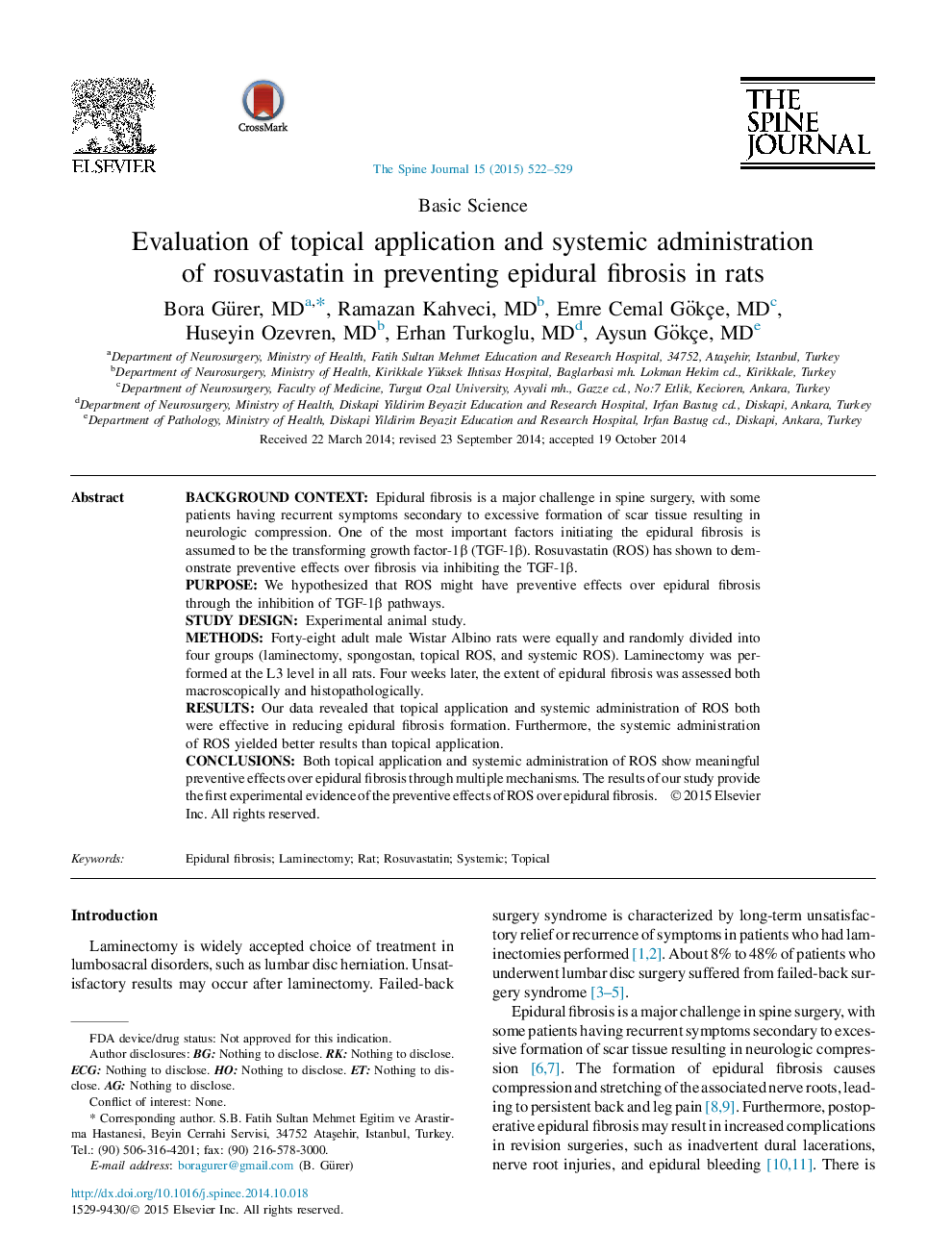| Article ID | Journal | Published Year | Pages | File Type |
|---|---|---|---|---|
| 4096722 | The Spine Journal | 2015 | 8 Pages |
Background contextEpidural fibrosis is a major challenge in spine surgery, with some patients having recurrent symptoms secondary to excessive formation of scar tissue resulting in neurologic compression. One of the most important factors initiating the epidural fibrosis is assumed to be the transforming growth factor-1β (TGF-1β). Rosuvastatin (ROS) has shown to demonstrate preventive effects over fibrosis via inhibiting the TGF-1β.PurposeWe hypothesized that ROS might have preventive effects over epidural fibrosis through the inhibition of TGF-1β pathways.Study designExperimental animal study.MethodsForty-eight adult male Wistar Albino rats were equally and randomly divided into four groups (laminectomy, spongostan, topical ROS, and systemic ROS). Laminectomy was performed at the L3 level in all rats. Four weeks later, the extent of epidural fibrosis was assessed both macroscopically and histopathologically.ResultsOur data revealed that topical application and systemic administration of ROS both were effective in reducing epidural fibrosis formation. Furthermore, the systemic administration of ROS yielded better results than topical application.ConclusionsBoth topical application and systemic administration of ROS show meaningful preventive effects over epidural fibrosis through multiple mechanisms. The results of our study provide the first experimental evidence of the preventive effects of ROS over epidural fibrosis.
